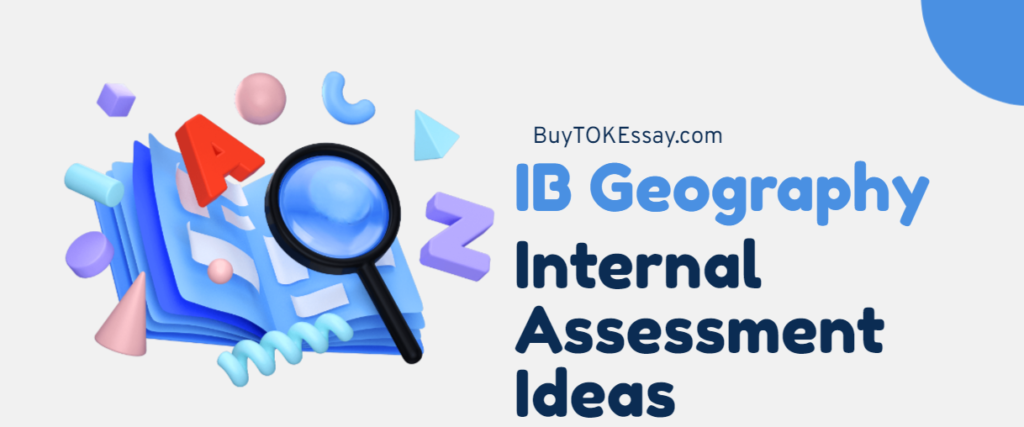You’ve undoubtedly realized that your Environmental Systems and Societies Internal Assessment is more than just another academic project if you’re an IB student working on it. Selecting the appropriate ESS IB IA topics may, in my experience, make the difference between a fruitful and a fruitless research approach. Your topic will guide your whole study, so it’s crucial to choose something interesting, possible to research, and in line with IB criteria.
What Is the ESS IB Internal Assessment?
Before choosing a topic, let’s clarify the Environmental Systems and Societies Internal Assessment layout. In my experience, students often miss important standards, which leads to losing points. According to typical IB guidelines, your IA should have:
- A clear research question.
- A well-defined methodology.
- Data collection (primary and secondary).
- Analysis and evaluation.
- A well-supported conclusion.
This organized structure makes sure your research is complete and meets IB standards.
By the way, many students choose topics that look interesting but are actually too broad or hard to research. As I know, a great IA topic should mix the excitement of research on environmental subjects with usefulness. You need a question that helps you gather information, analyze it, and draw a meaningful conclusion.
How to Choose a Perfect IB ESS Internal Assessment Topic?
Specificity is everything. Although a topic as vast as “The Impact of Climate Change” may seem intriguing, it is far too nebulous to cover in a 2,250-word paper. A focused perspective is instead provided by limiting it to something like “How Temperature Variations Affect Local Bird Migration Patterns.” The research process will go much more smoothly if you use this specific question to gather actual data, such as migration studies, temperature records, or bird counts.
Feasibility is another crucial element. Some students choose complex environmental topics requiring sophisticated equipment or laboratory tests for accurate analysis. Although lofty goals are reasonable, your IA has to be grounded. Your analysis will suffer, and your final mark may be affected if you cannot gather enough data.
Before deciding on a topic, ask yourself these three critical questions to ensure you’re headed in the proper direction:
- Can I get the information I need in the allotted time?
- Does the topic have enough specificity to be analyzed well?
- Does the IB’s emphasis on social and environmental systems relate to my topic?
I’ve found that responding “yes” to the three questions provides a solid foundation. Choosing the appropriate topic early on results in a better IA, which saves time and lowers stress.

Top Environmental Systems and Societies IB IA Topics
In this part, I’ll give you the best ESS IB Internal Assessment topics you can use for your research.
Climate Change and Its Effects
- The impact of rising temperatures on local weather patterns
- How climate change influences the frequency and intensity of wildfires
- Changes in urban heat islands due to increasing global temperatures
- The role of greenhouse gas emissions in altering seasonal temperature variations
- Ocean acidification and its effects on marine ecosystems
- The relationship between carbon footprints and sustainable transportation methods
- How climate change affects the growth and yield of agricultural crops
- The influence of extreme weather events on human settlements and infrastructure
- The effectiveness of carbon offset programs in reducing emissions
- Comparing the effectiveness of reforestation and afforestation in combating climate change
Biodiversity and Conservation
- The effects of urbanization on local wildlife populations
- The role of pollinators in maintaining ecosystem stability
- How habitat fragmentation influences species diversity in forests
- Conservation efforts to protect endangered species in national parks
- The impact of invasive species on native biodiversity
- The effectiveness of marine protected areas in preserving aquatic biodiversity
- How deforestation affects biodiversity in tropical rainforests
- The role of zoos and wildlife sanctuaries in species conservation
- The impact of pesticide use on bird and insect populations
- Sustainable land-use practices and their role in biodiversity conservation
Water and Marine Ecosystems
- The impact of agricultural runoff on freshwater ecosystems
- Effects of plastic pollution on marine life and biodiversity
- Eutrophication in local lakes and its environmental consequences
- Coral bleaching events and their relationship with ocean temperature rise
- Microplastic contamination in coastal waters and its impact on marine organisms
- The effectiveness of wetland restoration projects in improving water quality
- Overfishing and its effects on marine food webs
- The role of mangroves in coastal protection and biodiversity conservation
- Water scarcity and its influence on regional aquatic ecosystems
- Comparative analysis of water purification methods and their environmental impacts
Waste Management and Sustainability
- The effectiveness of community recycling programs in reducing landfill waste
- The environmental impact of single-use plastics in urban areas
- Composting as a solution to organic waste management in households
- Comparing biodegradable and traditional packaging materials in waste reduction
- The role of waste-to-energy technologies in sustainable waste management
- Electronic waste recycling practices and their environmental benefits
- The impact of plastic bag bans on local waste management systems
- Circular economy models and their implementation in waste management
- Analyzing the effectiveness of zero-waste initiatives in schools or communities
- Sustainable practices in food waste reduction and management
Renewable Energy and Sustainable Practices
- The effectiveness of solar energy in reducing household electricity consumption
- Comparing wind and solar power efficiency in different climate conditions
- The impact of hydropower on local ecosystems and biodiversity
- The role of biofuels in reducing carbon emissions from transportation
- Sustainable building designs and their impact on energy efficiency
- The feasibility of geothermal energy as an alternative power source in urban areas
- How electric vehicles contribute to sustainable energy practices
- The impact of government incentives on the adoption of renewable energy sources
- The effectiveness of smart grids in optimizing energy consumption
- Urban rooftop gardens as a method of improving sustainability and reducing energy use
Agriculture and Food Systems
- The impact of organic farming on soil health compared to conventional farming
- Sustainable irrigation practices and their role in water conservation
- The environmental effects of monoculture farming versus crop rotation
- How pesticide use affects pollinators and local ecosystems
- The role of urban farming in reducing food transportation emissions
- The impact of genetically modified crops on agricultural sustainability
- Comparing the carbon footprints of plant-based and meat-based diets
- The effectiveness of permaculture in promoting sustainable food production
- Food waste management strategies in restaurants and households
- The role of regenerative agriculture in combating soil erosion and climate change
Human Population and Urban Development
- The impact of rapid urbanization on local air quality
- How urban sprawl affects natural habitats and biodiversity
- The role of green infrastructure in promoting sustainable urban development
- The effectiveness of public transportation in reducing urban carbon emissions
- How smart cities contribute to energy efficiency and resource management
- The impact of high population density on water consumption and availability
- Sustainable housing solutions to accommodate growing urban populations
- The relationship between deforestation and urban expansion
- The effects of noise pollution on mental health in densely populated cities
- Waste management challenges in rapidly growing urban areas
Given the interconnected nature of environmental and social elements, any of these topics might serve as the basis for an organized Internal Assessment.

Need Help with Your IB Internal Assessment?
Reach your full ability and improve your IB IA scores with our help. The BuyTOKEssay.com team can help you write an excellent paper from scratch or tweak your current project to match your supervisor’s requirements.
You can buy an Internal Assessment that fits your needs with just one click.
What Is the Difference Between SL and HL ESS IB IA Topics?
The IB has extended the Environmental Systems and Societies course to provide SL and HL choices as of 2024. This progress allows students to study environmental studies at various levels. There are noticeable differences in the topic coverage, assessment methodology, and IA component between the two levels.
Ecology, biodiversity, water resources, land use, and climate change are just a few of the fundamental topics SL and HL students examine. But HL students go further into these topics and look at them from three different angles:
- The legal frameworks governing resource management and environmental protection.
- The study of economic concepts concerning resource allocation and ecological sustainability.
- Investigating moral theories on how humans interact with the environment is known as environmental ethics.
This supplementary HL content makes a more thorough and sophisticated grasp of environmental concerns possible.
Think about your academic interests, workload capabilities, and future goals while choosing between SL and HL in ESS. HL provides a deeper investigation of environmental systems by fusing intricate ideas from ethics, economics, and law. Students who want to pursue employment or more education in environmental science, policy, or related sectors should take this level. On the other hand, SL offers a thorough summary that is appropriate for anyone looking for a well-rounded comprehension without the extra specialty.
Final Thoughts on ESS IB IA Topics
Writing an excellent Environmental Systems and Societies Internal Assessment doesn’t have to be challenging. If you maintain organization, follow IB principles, and use data wisely, your IA will be interesting and high-scoring.
Your research process will be defined by the ESS IB Internal Assessment topics you choose, so carefully consider which ones best suit your resources and areas of strength. Giving yourself enough time to polish your work may make all the difference, so pace yourself, stay focused, and avoid putting things off until the last minute.
Good luck with your IA! Make sure it’s something you can be proud of! For expert help, BuyTOKEssay.com provides professional writing support for IB students. Our writers focus on Internal Assessments, TOK essays, and extended essays.





